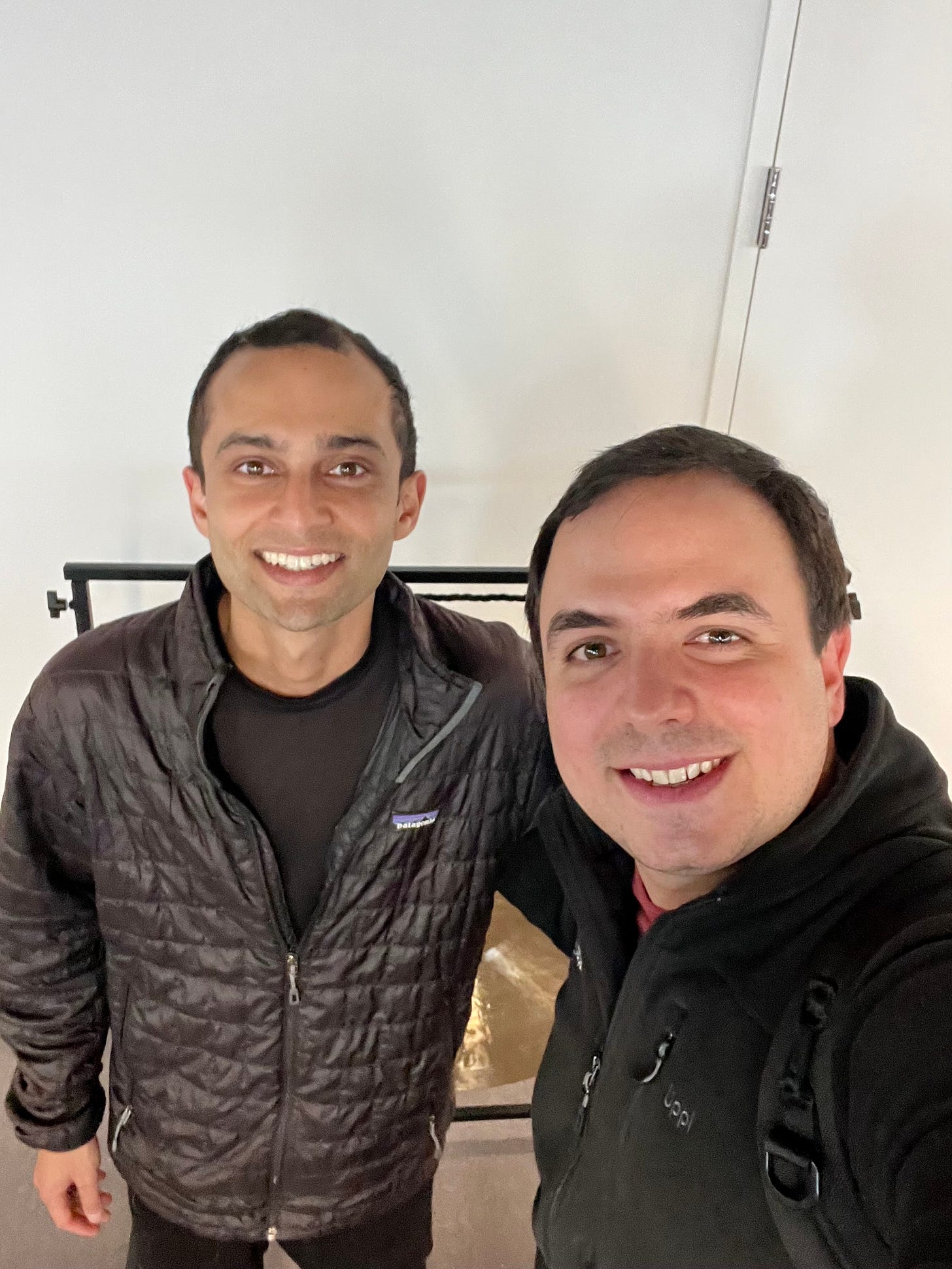This article is part of Fintech Leaders, a newsletter with almost 70,000 builders, entrepreneurs, investors, regulators, and students of financial services. I invite you to share and sign up! Also, if you enjoy this conversation, please consider leaving a review on Apple Podcasts or Spotify so more people can learn about us.
Rujul Zaparde is the CEO & Co-Founder of Zip, a leading SaaS & Fintech platform recently valued at $1.5 Billion that’s focused on bringing smarter procurement and spending software for small and large enterprises.
Founded in 2020 by Rujul and Lu Cheng, Zip today serves hundreds of clients, including giants like Snowflake, Coinbase, Reddit, Canva, Databricks, and Discover. Zip has raised $180m in equity from CRV, Y Combinator, TwentyTwo VC, and Tiger Global.
In this episode, we discuss:
The strict process and criteria they first used to validate Zip as a potential large business, before getting started
“We spoke to 150 procurement and finance leaders that we interviewed… And the word pain shows up in it like 150 plus times. And I actually distinctly remember multiple conversations where I actually heard the person tell me that he or she, or someone on their team, actually cried because the process was either so bad or confusing.”
Rujul is a second-time founder. He started his first company at age 17 and took only one hour to decide on the business idea that he ended up pursuing for almost 5 years. As he was getting ready to leave AirBnB to launch Zip, along with co-founder Lu Cheng, Rujul and Lu took a very different approach. They studied the opportunity for many months and created a list of 16 criteria to ensure they were going after a truly large and defensible business idea. I’m including the full list of 16 criteria below, along with some highlights.
The Bomb Test. Zaparde and Cheng created a “bomb test” as a key validation metric. The idea is simple: if the entire company were to perish because a bomb went off in the office building… one year after the catastrophe, would the company’s revenue be the same, lower, or higher as it was on the day of the bomb explosion? The correct answer is higher, but it’s only possible if you build a true software business that runs on code, not people. This test ensures that a company isn’t just a service disguised as software but has long-term scalability and a natural tailwind that sustains revenue growth without direct intervention from the founders.
Multiplayer Mode Validation. In B2B sales, it’s important to understand whether a product operates in "single-player" or "multiplayer" mode. While single-player mode might mean easier initial sales, multiplayer mode, where multiple stakeholders across different teams must be convinced, provides more buy-in and makes the product "stickier."
The 'Bomb Test' and 15 Other Criteria Zip's Founders Used to Vet Their Billion-Dollar Idea
Is this a hair on fire problem?
Unit economics must be great (profitable on first sale)
Is there existing budget for this solution? Or are you selling into a decision-maker who has a lot of budget to throw around?
And, is there an existing large company that you can point to in this space?
Is the TAM very large (initial few b+, but can get to 500b+)?
What is your wedge?
What is the clear distribution strategy we will start with?
Recurring revenue and selling to businesses (B2B SAAS)
Is this really sticky / core and super hard to rip out? ERP vs. recruiting software, for example
Is the ACV large enough to sell to even smaller (30-100 person) co’s and have it be worthwhile?
Why is now the right time to start the company?
Does it pass the "bomb" test?
What is the barrier to entry? Is this a defensible business model? I.e. is it sticky?
What data do you generate? How can you use that data to build a moat?
What is the competitive landscape? Is this 10x better than anything else out there?
We should not have significant platform risk
Does this require approval from just one function?
E.g. Is there single player mode
Is the ROI to save money or make more money crystal clear?
Is there a throat to choke (e.g. $10B+ company already doing this)?
The importance of moving fast, learning, and iterating
“A core belief I have, is that everything degrades, unfortunately, over time. And so as a founder, you're always fighting to help your company move faster.”
Prioritize Speed Over Perfection. At Zip, velocity matters more than perfection. They firmly believe in empowering teams to move quickly and learn from their mistakes along the way. Being wrong is part of the process. Rujul’s philosophy revolves around the idea that faster iteration leads to faster learning. He compares two hypothetical companies—one that moves slowly but is thoughtful, and another that iterates quickly, making mistakes along the way. He’d bet on the faster-moving company, because each iteration, even if wrong, brings a new insight. This constant experimentation accelerates the journey to the correct answer.
Nailing enterprise sales
"We had decided the first 10 customers we sell, we would like to sell them cold. Not a referral, not a friend of a friend that feels obligated to meet with us. We would just sell the first 10 customers cold, and we would charge real money for the product."
Zip’s first 10 customers were acquired through cold sales, not referrals or connections. Zaparde stresses that charging real money and reaching customers cold were intentional strategies to validate genuine product-market fit and demand, forcing them to prove the product’s value without relying on networks or favors.
Enterprise sales should be a learning mechanism. Founders should be deeply involved in enterprise sales from the start, as it serves as a direct learning tool to improve what works and what doesn’t as it relates to the product and pitch. While founders should eventually "fire themselves" from parts of the sales process, they always remain involved in key customer relations. In Zip’s early days, the sales process was highly transparent. Rujul shared with me the story how his team used Facebook Portals to allow everyone to listen in on sales calls to learn and even provide real-time feedback and refine Rujul’s approach.
Why Rujul loves rewarding and promoting talent from within the company… and a lot more!
"One of the core values we have at Zip, is that we should not have managers who cannot do the work of the IC (Individual Contributor), and if we have managers that can't do the jobs of the of what the folks on their team are doing, we should not have that person as a manager."
Promoting from Within for Deeper Expertise. Rujul is a strong believer in promoting employees who have been deeply involved in the work as individual contributors (ICs). His rationale is that internal promotions bring forward individuals who have a deep understanding of the role, making them highly capable managers who can lead by example. Internal promotions can also serve as a benchmark for external hires. While internal growth is value, Rujul also acknowledges that as Zip scales, hiring external managers is necessary, but these external hires are often benchmarked against internally promoted managers. By observing how internally promoted leaders operate, external managers should be able to learn how to be successful at a company.
Want more podcast episodes? Join me and follow Fintech Leaders today on Apple, Spotify, or your favorite podcast app for weekly conversations with today’s global leaders that will dominate the 21st century in fintech, business, and beyond.



























Share this post